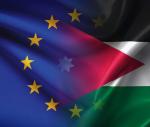You are here
Failure of the multicultural project in Europe
Sep 20,2018 - Last updated at Sep 20,2018
Europe seems to feed what Samuel Huntington called in his 1992 lecture “The clash of civilisations”: a myth that assumes cultural, as opposed to political or economic, conflict between Western and non-Western civilisations. Indeed, civilisational conflict is wider nowadays than ever before.
UK Prime Minister Theresa May has recently added insult to the injuries Europe is facing in its attempt to becoming multicultural. England in particular has sparked what is being called the “Windrush scandal” where a few thousand African-Caribbean British nationals are no longer welcome in England, and are being systematically targetted and subjected to deportation, no medical insurance or health care, no pension and job losses.
The Windrush generation comprises British citizens who came to the UK from the Commonwealth as children following the World War II and whose rights were guaranteed in the Immigration Act of 1971. They are known as the Windrush generation after British ship “Empire Windrush” arrived at Tilbury Docks in Essex in 1948, carrying 492 Caribbean passengers on board.
It is usually said that newcomers/immigrants maybe unwanted and feared in Europe precisely because they are the unwitting triggers for the pain produced by memories of that vanished imperial and colonial past. What multiculturalism actually does, suggests Paul Gilroy, is try to make Britain like the rest of the world and this threatens and intimidates the British monoculture and ethnic absolutism.
This is not the first time the far-right in England has a monolithic approach towards its society. In 2011, Prime Minister David Cameron expressed resentment towards not only mass migration but, as he categorised it “bad immigration”, as opposed to a “good one”. The speech came in conjunction with France’s ban of the burqa/niqab, amidst political uproar and acceleration in policies aimed at the large Muslim and Arab population in France in particular, and Europe in general. A speech by German Chancellor Angela Merkel in 2010 had already announced that multikulti has failed in Germany.
Labelling immigration or even dividing immigrant influx into two parties or groups: good and bad, black and white, good and evil and favourable and unfavourable seems discriminatory and offers little understanding of postmodern hybrid societies. But it also expresses paranoia, as Salman Rushdie said: “The old imperial powers, such as the British, have found it hard to adapt to their new, diminished status in the post-colonial world… In empire’s aftermath, they have been pushed back into their box, their frontiers have closed in on them like a prison, and the new opening of political and financial borders in the European Union is still viewed by them with suspicion”. The drunken Sisodia says in Rushdie’s “The Satanic Verses”, that “the trouble with the Engenglish is that their hiss hiss history happened overseas, so they dodo don’t know what it means.”
Undoubtedly, migration has been an inevitable part of the process of globalisation and it has had cultural consequences. This, however, has not been perceived open-mindedly or tolerantly, neither has it been widely welcomed. Migration has formed large networks and communities within the quartet: Turkish in Germany, Caribbeans, Middle Easterns, Pakistanis and Indians in the UK, Algerians and Moroccans in France and a mix of different ethnicities within the US. Without migration and displacement, Western civilisation, as Edward Said puts it, is an ‘ideological fiction, implying a sort of detached superiority for a handful of values and ideas, none of which has much meaning outside the history of conquest’ which today gives its metamorphosed capital cities their interracial, multicultural identity. While one feels obliged by human necessity and justice to encourage, stimulate and defend cultural diversity and anti-racism within a metropolitan city like London, where the world feels at home, one cannot neglect the individuality and specificity of religious rituals and cultural codes that create each particular individual. Cultural diversity is necessary, however, to build human societies and sustain the survival and continuity of human culture.
Undoubtedly, the supposed failure of multiculturalism is not only cultural, but also political, evident in the involvement of Western power in former colonies: Africa, the Middle East and Asia.
Multiculturalism has diversity at its heart; a fact the global free market opposes since it seeks singularising a global culture.
We create multicultural societies through cultural translation: by accepting differences, by becoming multicultural individuals ourselves.
The writer is author at Palgrave Macmillan and an assistant professor in post-colonial and English literature at the American University of Madaba, Jordan. He contributed this article to The Jordan Times













